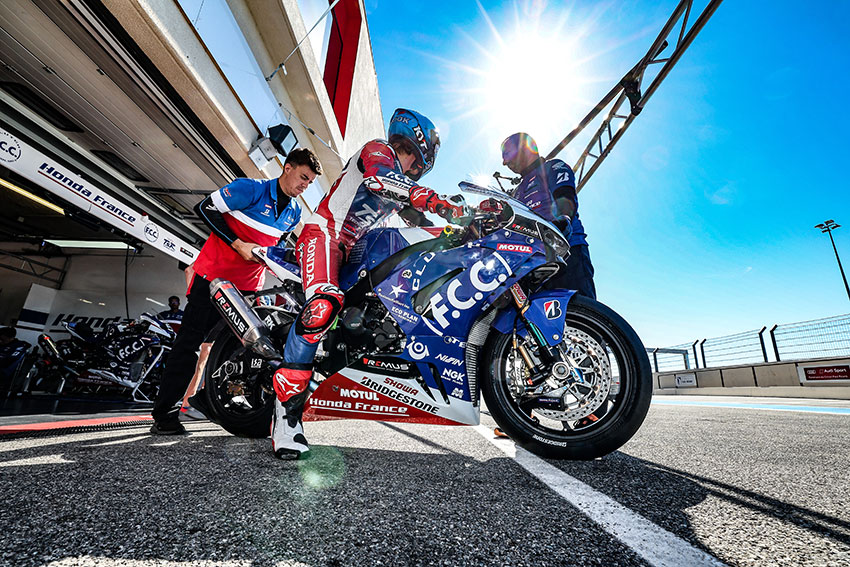

Japan’s premiere clutch manufacturer is expanding its core technologies to target exciting new applications in advanced material science.

Having steadily expanded its business alongside the development of the automotive industry, FCC – Japan’s premiere clutch manufacturer – has claimed the top worldwide share in motorcycle clutches in recent years.
“Our global production system consists of 22 manufacturing facilities covering 10 overseas countries in addition to our Japanese facilities,” says Yoshitaka Saito, President of FCC. “Amidst today’s unrelenting competition, the FCC group mission is to be a company that can be counted on for safety and respect for the environment and to meet customers’ every need with an uninterrupted supply of innovative products incorporating advanced technologies”
One of the group’s greatest assets, Mr. Saito points out, is that it manufactures clutches through an integrated system, extending from research and development of frictional materials to the assembly of parts. However, with the automotive industry today seeing huge shifts both from traditional engines to electric vehicles (EVs), and from heavier materials such as steel to lighter ones like aluminum, manufacturers like FCC are facing new challenges in order to remain competitive in a rapidly changing marketplace. In particular, the industry has been heavily impacted by CASE (Connected, Autonomous, Shared, and Electric) trends, and with this ongoing transition to more efficient and more environmentally friendly methods of transport, it is expected that the use of clutches will gradually reduce.
“We are implementing two main activities to combat this trend,” says Mr. Saito. “The first activity is in the mobility world that we already serve. In this CASE era we're trying to develop new products through our core technologies.”
First of all, FCC is developing aluminum die casting technology necessary for the lightweight trend for EVs and also for heat management, which is essential for EV driveability and safety.
“We also have steel forming-machining technology and our unique friction material bonding technology in our Clutch Friction Discs,” highlights Mr. Saito. “We have strength in welding technology too, even bi-metallic welding of dissimilar metals is another example of our strengths. As we have all these various elemental technologies, even in this CASE era, we believe we can come up with functional combined material products. For instance, laminated stacks for e-motors and rotor shafts.”
“One of our unique capabilities as a company is that we're able to chemically multiply mechatronics. This is very unique, and I don't think a lot of suppliers are doing this,” he says.
The second activity that FCC is focusing on as it diversifies from clutch manufacturing is related to a core technology that was initially used for friction materials (functional paper sheets). The company found that this paper technology can also be used for fields other than mobility, with plans to utilize it for environment purification, energy solution applications, and fuel cell products.
“Our unique paper making technology has the possibility of becoming a breakthrough for the social implementation and commercialization of advanced functional materials. Especially in the field of CO2 absorption, we are making a major shift toward technology development to commercialize applications with innovative absorbents materials,” explains Mr. Saito.
FCC is additionally collaborating with partner, Carbon Fly (Japan), on its high performance multi-walled carbon nanotube (MWCNT) development for the creation of new products.
“We have agreed to collaborate, combining our know-how accumulated from Clutch friction material development, for the creation of attractive products and taking advantage of their MWCNT characteristics,” says Mr. Saito. “We are working on technology development to uniformly disperse while maintaining the long fiber length characteristics, enabling the possibility for applications for various products and their implementation across society.”
The company also has an ongoing collaboration with Cell Impact AB (Sweden) to set up a new demonstration production line at FCC (Japan) which involves an innovative stamping technology for hydrogen fuel cell flow plates (or separators). “There are various development and research programs FCC is involved in, which expand the utilization of our core technologies,” Mr. Saito explains. “These are just some examples of our expansion, which are only possible by combining our knowledge from the company’s chemistry-based background, and our unique capability to chemically multiply mechatronics.”
0 COMMENTS